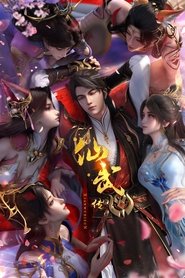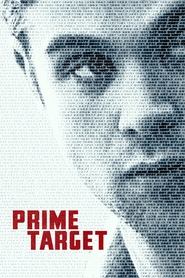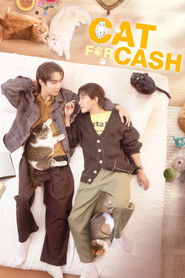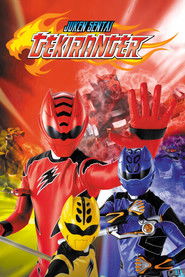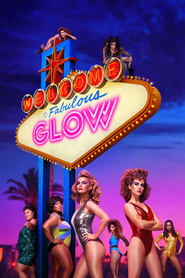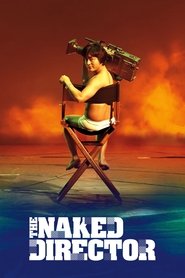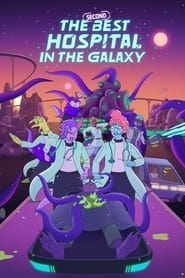Popular Musical TV Series - Page 150
-
Shark Tank India
2021
Shark Tank India
2021
star 7.6Aspiring entrepreneurs from India pitch their business models to a panel of investors and persuade them to invest money in their idea. -
Kubo Won't Let Me Be Invisible
2023
star 6.7First year high schooler Junta Shiraishi is a mob character who goes unnoticed even when he's standing right next to you. But his classmate, "heroine-level beauty" Kubo, always notices him and is there to tease him. Anyone can become special to someone, but it might be a little too early to call these feelings "love." Perhaps this story is still two-steps from being a romantic comedy--let's call it a sweet comedy where a background character becomes visible! -
Legend of Xianwu
2023
Legend of Xianwu
2023
star 8.5As a loyal disciple, Ye Chen dedicated himself to guard the spiritual medicine field for his sect. But, during a fight with enemies, the spiritual field was destroyed. His loyalty and dedication to the sect could not save him. The loyalty he thought he had obtained from his peers and lover, could not save him from betrayal. Thus, he was shamelessly banished from the sect. With the help of a flame falling from heaven, Ye Chen began to develop himself into a stronger cultivator. Battled against his opponents, unfolded his legendary life and rewrote his own story… -
The Legend of the Galactic Heroes: Die Neue These
2018
star 7.7Caught in a 150-year-long war, interstellar nations reach the pinnacle of strategic combat at the hands of two genius leaders. Reinhard of the Galactic Empire, and Yang of the Free Planets Alliance lead the charge from opposing fronts. Fighting is their destiny, but in this vast universe torn by political intrigue, their greatest enemy may not be each other. -
Prime Target
2025
Prime Target
2025
star 6.8A brilliant math student is on the verge of a major breakthrough when a shadowy enemy tries to stop him. Fighting for answers—and his life—he teams up with a government agent to unravel a high-stakes conspiracy. -
Denver, the Last Dinosaur
1988
star 6.6Filled with magic, warmth and friendship, join the adventures of a fun-loving dinosaur and his group of ingenious young friends: Jeremy, Mario, Wally, Heather, Casey and Shades. Pursued by fortune seekers, Denver always finds himself in the middle of unexpected adventures! -
Cat for Cash
2026
Cat for Cash
2026
star 8To pay his mother's debt, a cat-hater must work with a handsome feline lover, unaware that the man is the very person he owes money to. -
Anyway, I'm Falling in Love with You.
2025
star 6.8It’s the year 2020, and Mizuho is having the worst 17th birthday ever. Her parents forgot it’s her birthday, she still can’t seem to get close to the senior she likes, and all her school trips and tournaments are canceled thanks to a new disease going around. She’s convinced she’ll never have the kind of youth she’s always dreamt of…until her childhood friend, Kizuki, suddenly asks her out. -
Doctor Slump
2024
Doctor Slump
2024
star 8.2Once rivals in school, two brilliant doctors reunite by chance — each facing life’s worst slump and unexpectedly finding solace in each other. -
Over the Garden Wall
2014
Over the Garden Wall
2014
star 8.6Two brothers, Wirt and Greg, find themselves lost in the Unknown; a strange forest adrift in time. With the help of a wise old Woodsman and a foul-tempered bluebird named Beatrice, Wirt and Greg must travel across this strange land, in hope of finding their way home. Join them as they encounter surprises and obstacles on their journey through the wood. -
Juken Sentai Gekiranger
2007
star 7.5Beast-Fist is a form of martial arts where the powers of a beast can be acquired by sensing the beast in their hearts. There are two relative schools of the Beast-Fist. One, the Beast-Fist of justice, Geki Juken Beast Arts. And one, the evil Beast-Fist of Rin Juken Akugata. The two schools of warriors learn and change in order to increase in power every day, as they are destined to clash. -
A Killer Paradox
2024
A Killer Paradox
2024
star 7.4When one accidental killing leads to another, an ordinary young man finds himself stuck in an endless cat-and-mouse chase with a shrewd detective. -
Mobile Suit Gundam 00
2007
star 7.6The year is 2307 A.D. Although fossil fuels have been depleted, humanity has obtained a new source of energy to replace them, in the form of a large-scale solar power generation system based on three huge orbital elevators. However, the benefits of this system are available only to a handful of major powers and their allies. In this world of never-ending conflict, a private armed organization appears, dedicated to the elimination of war through armed force. Its name is Celestial Being, and it is in possession of "Gundam" mobile suits. -
Honest Living
2002
Honest Living
2002
-
Wagle Ki Duniya
2021
Wagle Ki Duniya
2021
star 7.3Three generations of the family live together, who share all their happiness and sorrows. Follow the story of this family as they bring laughter to each other's lives and will make your heart melt. A new generation of the old critically acclaimed show is here to take you on a roller coaster ride of emotions. -
Sesame Street
1983
Sesame Street
1983
Rechov Sumsum is an Israeli educational television program for preschoolers, based on the popular U.S. children's show "Sesame Street". The first three series of the show were a joint production of the Israeli educational television and the CTW, a Worldwide American non-profit organization which has been co-producing the original American "Sesame Street" since 1969. -
GLOW
2017
GLOW
2017
star 7.3In 1980s LA, a crew of misfits reinvent themselves as the Gorgeous Ladies of Wrestling. -
The Naked Director
2019
The Naked Director
2019
star 7.3Follows the rise of Tooru Muranishi, one of Japan's most notorious directors of adult video. Adapted from a biography of the man, this series depicts the character, his art, vision and his interactions with the approving and disapproving folk around him. -
Spiritpact
2016
Spiritpact
2016
star 6Heir of an old famous family of exorcist, Yang Jinghua(You Keika in Japanese) is stricken by poverty after losing his parents. He struggles as a street fortune teller and computer recovery part timer to earn money. One night in a junkyard, he meets the mysterious yet charismatic exorcist, Duanmu Xi(Tanmoku Ki in Japanese) , fighting an evil spirit. This encounter is the beginning of a fated story for Yang Jinghua. Unfortunately for him, he was actually hit by a car and became a ghost. That was when the handsome exorcist Duanmu Xi appeared and asked Yang Jinghua to make a "pact" with him to fight evil spirits together. Here starts the friendship of our heroes! -
The Second Best Hospital in the Galaxy
2024
star 6.6Dr. Sleech and Dr. Klak — aliens, best friends and intergalactically renowned surgeons — tackle anxiety-eating parasites, illegal time loops and deep-space STIs.
 Netflix
Netflix
 Amazon Prime Video
Amazon Prime Video
 Apple iTunes
Apple iTunes
 Apple TV Plus
Apple TV Plus
 Disney Plus
Disney Plus
 Google Play Movies
Google Play Movies
 Paramount Plus
Paramount Plus
 Hulu
Hulu
 HBO Max
HBO Max
 YouTube
YouTube
 fuboTV
fuboTV
 Peacock
Peacock
 Peacock Premium
Peacock Premium
 Amazon Video
Amazon Video
 The Roku Channel
The Roku Channel
 AMC+
AMC+
 Kocowa
Kocowa
 Hoopla
Hoopla
 The CW
The CW
 Vudu
Vudu
 Starz
Starz
 Showtime
Showtime
 PBS
PBS
 Pantaflix
Pantaflix
 FXNow
FXNow
 Tubi TV
Tubi TV
 Kanopy
Kanopy
 Comedy Central
Comedy Central
 Crunchyroll
Crunchyroll
 Microsoft Store
Microsoft Store
 Redbox
Redbox
 Sun Nxt
Sun Nxt
 ABC
ABC
 DIRECTV
DIRECTV
 Crackle
Crackle
 Fandor
Fandor
 Plex
Plex


